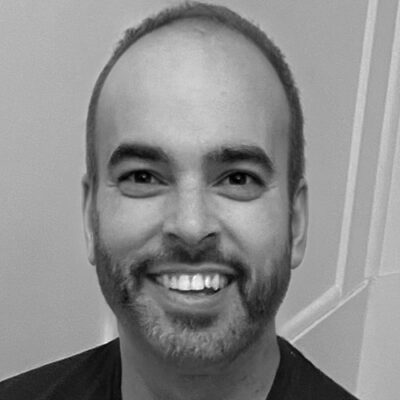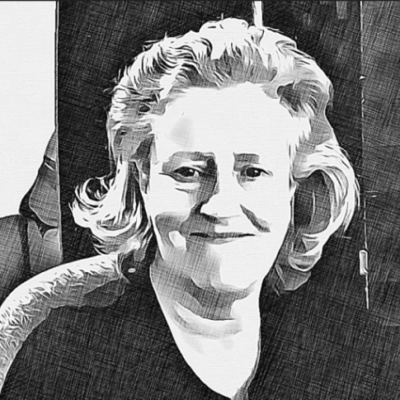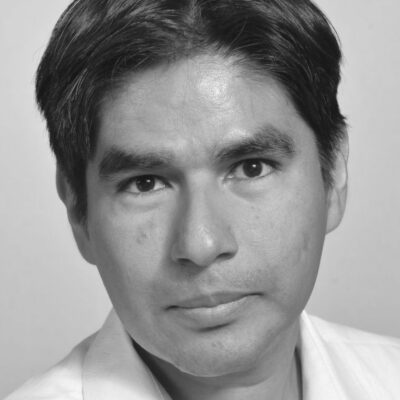Bourse de recherche DawsonAI
Cohorte W2022
Charles Le Guen
Techniques d’animation 3D et de synthèse d’imagesCharles Le Guen est le président du département d'animation 3D et d'images de synthèse du Collège Dawson, où il enseigne depuis 2013. Depuis plus de vingt ans, Charles vit et travaille dans le monde entier, créant des effets visuels générés par ordinateur pour des longs métrages hollywoodiens, des cinématiques de jeux vidéo, des émissions de télévision et des publicités. Ses recherches actuelles...
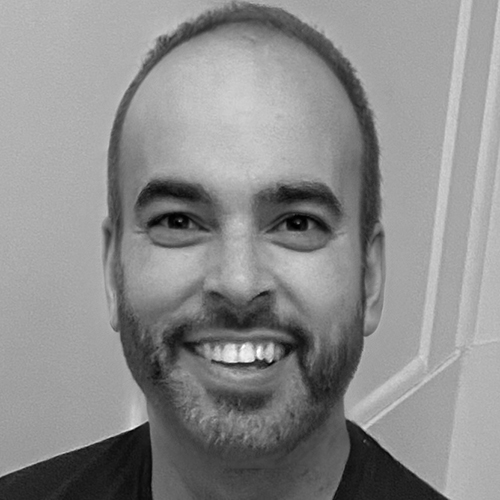
Charles Le Guen
Charles Le Guen is the Chair of the 3D Animation & CGI department at Dawson College, where he has been a faculty member since 2013.
For over twenty years, Charles has lived and worked around the globe, creating computer-generated visual effects for Hollywood feature films, video game cinematics, TV shows, and commercials.
His current research aims to explore the overlap of machine learning with the creative and applied arts.
Michel Fournier-Simard
Sciences politiquesMichel Fournier-Simard enseigne au département de science politique de Dawson depuis janvier 2020. Il termine actuellement son doctorat à l'Université McGill, où il se spécialise dans la police algorithmique. Sa thèse intitulée " The Politics of AI : the Case of Canadian Policing " porte sur la police prédictive à Vancouver, les lecteurs automatiques de plaques d'immatriculation à Montréal et les caméras corporelles induites par l'IA. En tant que...
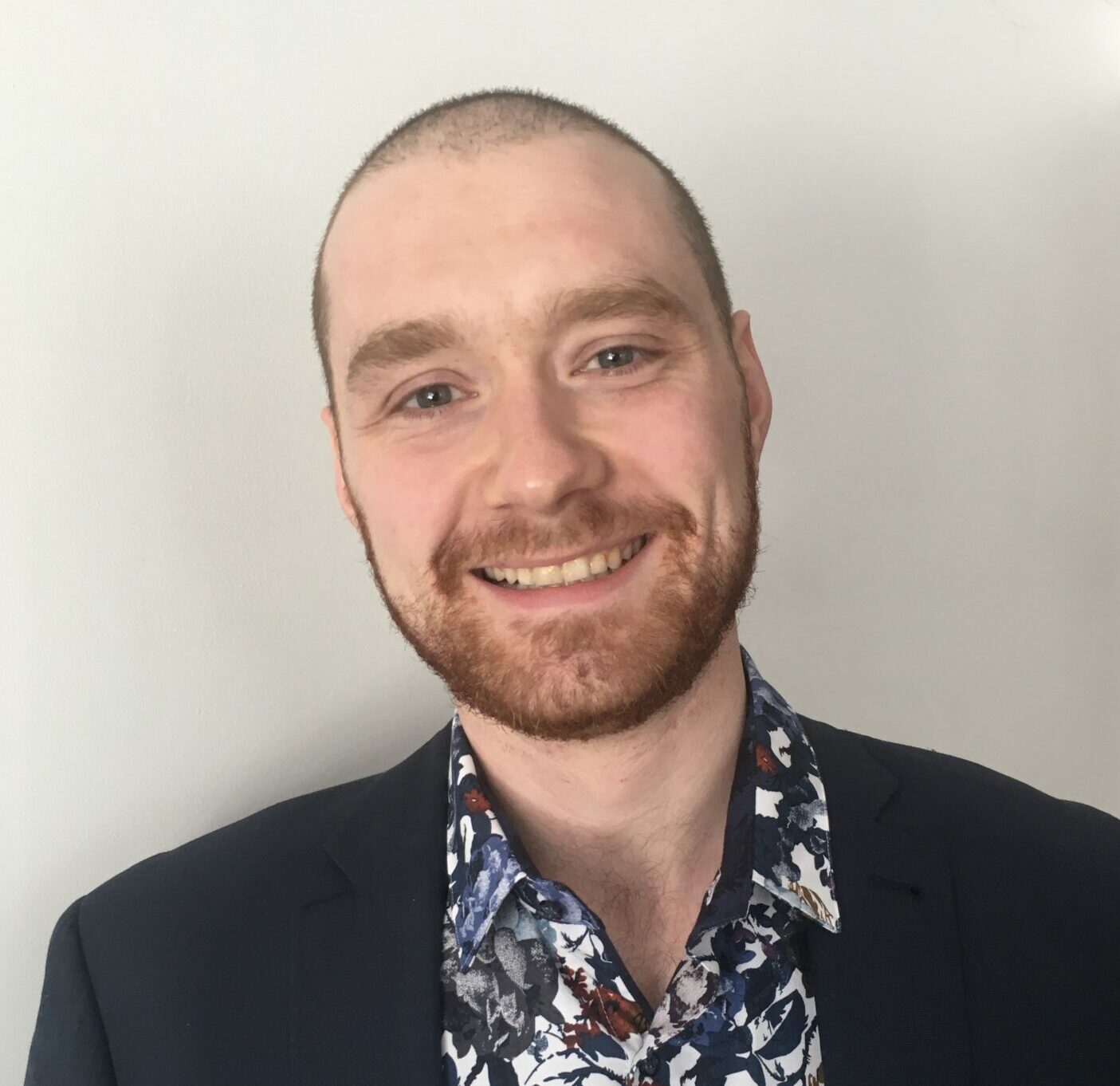
Michel Fournier-Simard
Michel Fournier-Simard teaches in Dawson’s Political Science Department since January 2020. He is currently completing his Ph.D. at McGill University, where he specializes in algorithmic policing. His dissertation titled “The Politics of AI: the Case of Canadian Policing” focuses on Predictive Policing in Vancouver, Automatic Licence Plate Readers in Montreal, and AI-Induced Body-Worn Cameras.
As the police enact the State monopoly of legitimate violence over a given territory, the way it engages with technological innovations to enhance this power - or not -, and how society responds, are crucial dynamics illustrative of the challenges AI poses for policymakers. When engaging with algorithmic policing, services must identify which products or services provide the best balance between optimized technical capacities and cost efficiency, while developing use policies addressing privacy, inequality, and unaccountability concerns. Michel dives into the sensemaking of police policy leaders, and the political consequences of their decisions.
Michel holds an MD degree in Comparative Political Sociology (Sciences Po - Paris), and a B.S. in Political Science & History. His doctoral research was notably supported by the Wolfe Chair in Scientific and Technological Literacy and the Social Sciences and Humanities Research Council of Canada.
Cohorte W2021
Anna-Liisa Aunio
SociologieAnna-Liisa Aunio enseigne au département de sociologie du Collège Dawson et coordonne les profils d'études environnementales et de voyage et tourisme. Après avoir obtenu un doctorat en sociologie à l'Université McGill, elle a poursuivi ses recherches et ses projets communautaires dans le domaine des études critiques sur l'alimentation. Elle dirige actuellement le Dawson Food Justice and Sustainability Research Hub à Dawson...

Anna-Liisa Aunio
Anna-Liisa Aunio teaches in the Sociology department at Dawson College and is the Coordinator of the Environmental Studies and Travel and Tourism profiles. After completing a Ph.D. in sociology at McGill University, she pursued research and community-linked projects in critical food studies. She currently directs the Dawson Food Justice and Sustainability Research Hub at Dawson College and works with community partners on data collaboration as well as neighborhood planning and implementation of policies to transform local food systems towards just, sustainable food options for all Montrealers. She also works in smart city and data integration with a focus on the uses of machine learning and agent-based modeling for research and policy applications.
Myriam Rafla
Cinéma - CommunicationsMyriam Rafla enseigne au département de communication cinématographique du Collège Dawson. Après avoir obtenu une maîtrise en production cinématographique avec spécialisation en scénarisation de l'Université York, elle a fait carrière dans le cinéma québécois auprès des organismes de financement de la culture en tant qu'analyste de scénarios à la SODEC et à Téléfilm Canada. Myriam complète actuellement un doctorat à Concordia...

Myriam Rafla
Myriam Rafla teaches in the department of Cinema Communications at Dawson College. Following an MFA in Film Production with a specialization in Scriptwriting from York University, she pursued a career in Quebec cinema with the cultural funding agencies as a script analyst at SODEC and Telefilm Canada. Myriam is currently completing a Ph.D. at Concordia University in Communication focusing on digital narratology and new media.
Patricia Campbell
InformatiquePatricia Campbell est membre de la faculté d'informatique. Elle a également enseigné à l'Electro Tech Continuing Education. Elle enseigne au Collège Dawson depuis plus de 25 ans. Patricia est titulaire d'un BCompSci de l'Université Concordia et d'un diplôme Performa MEd de l'Université de Sherbrooke. De plus, il y a bien longtemps, Patricia est titulaire d'un...
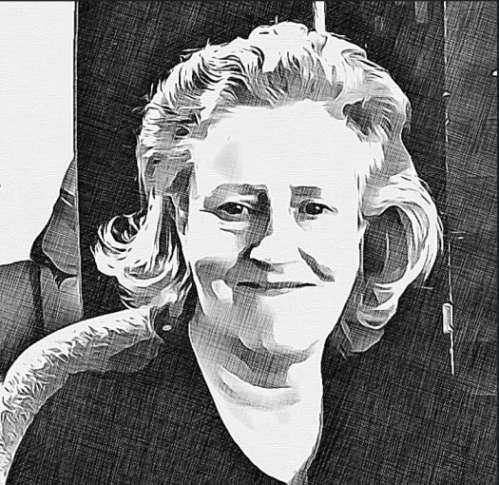
Patricia Campbell
Patricia Campbell is a member of the Computer Science Faculty. She has also taught in the Electro Tech Continuing Education. She has been teaching at Dawson College for over 25 years. Patricia has a BCompSci from Concordia University, and Performa MEd Diploma from Université de Sherbrooke. Also, long ago and far away, Patricia holds a DEC in Computer Science from Dawson College.
For the first part of Patricia's teaching career, she worked concurrently in the industry, in various positions. Her industry experience involves everything from Mainframe to IoT computing, including telecommunications infrastructure wired and wireless and systems development and deployment. As a result, Patricia has always emphasized the importance of computer science pedagogy to follow current developments in the industry, preparing students for ever-evolving careers.
Her current research interests include cloud-native software systems, development, management, and deployment. Parts of her research have been supported by ECQ grants received in 2020 and 2017. Her research focus is aimed at making the methods and ideas accessible to students, some of which can be found here: https://cloudnativeish.wordpress.com/
An important of Patricia's teaching philosophy involves trying to engage and ensure that a diverse and wide spectrum of humanity is involved in building the technology that underlies and is part of our day-to-day lives.
Victor Ponce
InformatiqueVictor Ponce est membre du corps professoral du département d'informatique depuis 2019. Il est candidat au doctorat en informatique à l'Université de Sherbrooke. Ses recherches actuelles portent sur les architectures logicielles, la conscience du contexte et le traitement du langage. Victor est titulaire d'une maîtrise en systèmes distribués de l'Université polytechnique de Madrid (UPM), Madrid, Espagne. Il a participé à...
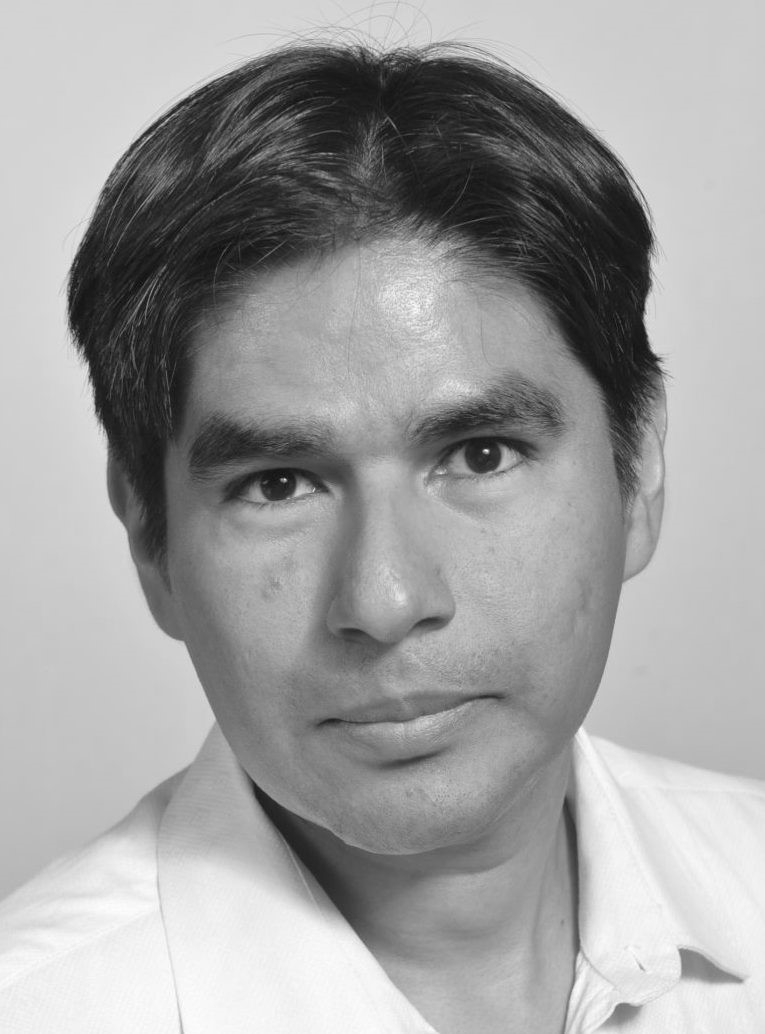
Victor Ponce
Victor Ponce is a faculty member in the Computer Science department since 2019. He is a Ph.D. candidate in computer science at Sherbrooke University. His current research interests include software architectures, context-awareness, and language processing. Victor holds an MSc. in Distributed Systems from the Polytechnic University of Madrid (UPM), Madrid, Spain. He has participated in IT/IS projects in different companies and collaborated in research projects on the Ambient Intelligence research team at Sherbrooke University. His interest in machine learning started after applying Natural Language Processing to improve the semantic processing of context in IoT scenarios.


